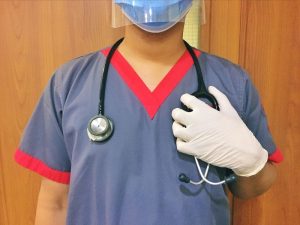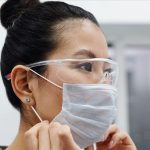White House Invests $1.5B in Health Care
 Vice President Kamala Harris recently announced a $1.5 billion investment to help grow and diversify the nation’s health care workforce and bolster equitable health care in the communities that need it most during the COVID-19 pandemic and in the years to come.
Vice President Kamala Harris recently announced a $1.5 billion investment to help grow and diversify the nation’s health care workforce and bolster equitable health care in the communities that need it most during the COVID-19 pandemic and in the years to come.
These awards are supporting the National Health Service Corps, Nurse Corps and Substance Use Disorder Treatment and Recovery programs. These programs address workforce shortages and health disparities by providing scholarship and loan repayment funding for health care students and professionals, in exchange for a service commitment in hard-hit and high-risk communities.
Thanks to the American Rescue Plan, this funding will support more than 22,700 providers—the largest field strength in history for these programs and a record number of skilled doctors, dentists, nurses and behavioral health providers committed to working in underserved communities during a moment when we need them the most.
More than 23.6 million patients in the United States receive care from National Health Service Corps and Nurse Corps clinicians. During the pandemic, thousands of these health providers have served in community health centers and hospitals across the country, caring for COVID-19 patients, supporting the mental health of their communities and administering COVID-19 tests, lifesaving treatments and vaccinations.
Only about 7% of physicians in the United States identify as Black or Hispanic/Latino despite the fact that Black and Hispanic/Latino Americans account for 31% of the nation’s total population. More than 25% of physicians serving through the National Health Service Corps identify as Black or Hispanic/Latino. The mobilization of these providers is a critical step toward addressing racial and ethnic disparities in health outcomes and expanding the representation of these communities in health care professions.
Further, the United States is projected to face a shortage of almost 60,000 primary care doctors, dentists and psychiatrists over the next decade and needs an estimated 158,000 new nurses to graduate every year for the rest of the decade. A substantial barrier in meeting these health care needs is the student debt associated with graduate health education, which can average more than $200,000 per student and prevent students from underserved communities from even considering a career in health care professions. To further support the expansion of primary care, the Administration also plans to begin awarding $330 million in American Rescue Plan funding for Teaching Health Center Graduate Medical Education. This additional funding will further support the expansion of the primary care physician and dental workforce in underserved communities through community-based primary care residency programs in family medicine, internal medicine, pediatrics, internal medicine-pediatrics, psychiatry, obstetrics and gynecology, general dentistry, pediatric dentistry or geriatrics.




